|

Synopsis:
A radio producer (Patricia Neal) discovers a charismatic drifter (Andy Griffith) in Arkansas who is soon tapped to star in his own television show as “Lonesome Rhodes”, and becomes a folksy cult favorite with “the common people”. Griffith and Neal fall in love, but their romance is compromised when Griffith marries an adoring young baton-twirler (Lee Remick). Meanwhile, Griffith’s estranged wife (Kay Medford) shows up to wreak havoc, and Griffith’s growing need for adoration turns him into a monstrous narcissist.
|
|
Genres, Themes, Actors, and Directors:
- Andy Griffith Films
- Elia Kazan Films
- Folk Heroes
- Journalists
- Lee Remick Films
- Media Spectacle
- Naïve Public
- Patricia Neal Films
- Political Corruption
- Television
- Walter Matthau Films
Response to Peary’s Review:
There could hardly be a more apt time in American history to post a review of this “cynical film” about a “Frankenstein Monster [who] use[s] the media to bolster his fame, manipulate the public, and increase his power”.
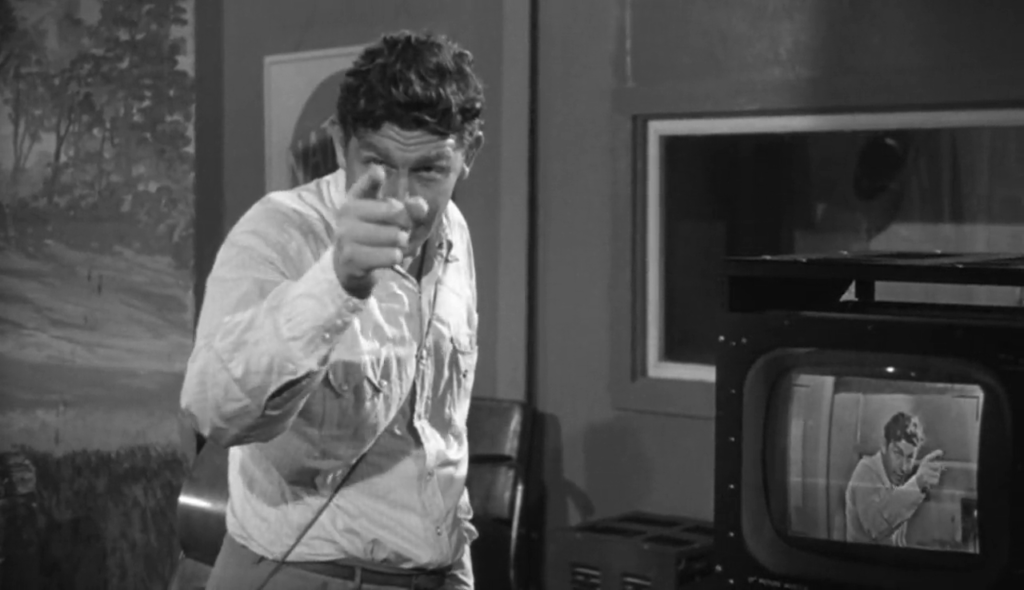
Director Elia Kazan and screenwriter Bud Schulberg had no way of knowing that a bombastic reality-T.V. star would rise to the highest power of the land in 2016 — but their telescoping of current-day America is simply uncanny, and demonstrates that human tendencies haven’t evolved much (if at all) since this film’s release. Peary writes that “Schulberg is expressing his fear that television, which has tremendous power, will become a political tool” — as, of course, it has (along with the internet). He notes that while “Lonesome Rhodes is guilty of taking advantage of the medium — through which you can fool all the people all of the time”, “Schulberg is attacking us, the ignorant people who sits like sheep and believes whatever it sees on the tube”. Perhaps most creepily prescient is Peary’s comment that these days, if “Rhodes were caught expressing his real thoughts while thinking the mike was off, his popularity would probably go up”. ‘Tis true, indeed. He closes his review by noting that this is a “well-made film” and that “in her debut, Lee Remick catches your eye as a sexy baton twirler”:
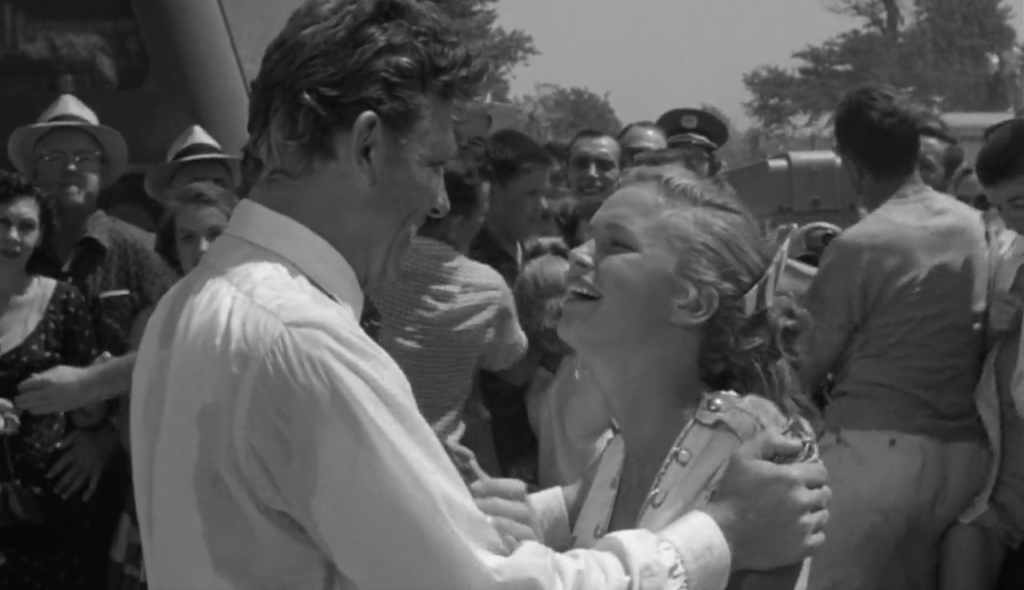
— but I find it more relevant to comment on Kazan’s memorable direction and Gayne Rescher and Harry Stradling’s consistently stark b&w cinematography.
In his Alternate Oscars, Peary names Griffith Best Actor of the year for his role here, noting that his “Lonesome Rhodes is quite a shock, a perversion of the other two characters” he was known for at the time: a “harmless country boy” in No Time for Sergeants on Broadway, and his “easygoing sheriff in the long-running Andy Griffith Show.” He writes that “Lonesome is abrasive, ambitious, shrewd, and manipulative” — someone who “with unbridled energy and the right mix of superiority and humility, attempts to convince everyone around him that he is right”. He further notes that “when Lonesome expounds his conservative philosophy to redneck sycophants” he’s “creepy”, and that “when Lonesome has made a fool of himself on national television and no one shows up for his lavish dinner and he hugs the servants in an effort to get them to say they love him” he “is pathetic”.
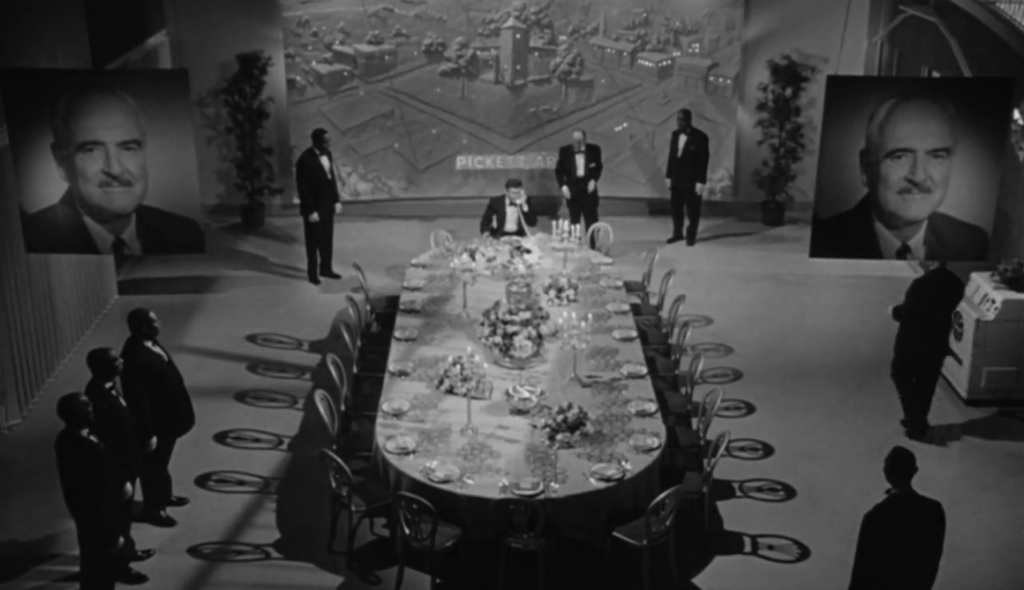
Lonesome’s ultimate lesson (appropriately enough) is that “it really is lonely at the top”. Peary asserts it’s a good thing that Griffith never again played such a “monster” on-screen, given that no one “could stand to see or hear another Lonesome Rhodes” — but then again, life itself offers plenty such monsters to loathe…
Redeeming Qualities and Moments:
- Andy Griffith as “Lonesome Rhodes”

- Patricia Neal as Marcia Jeffries (nominated by Peary as one of the Best Actresses of the Year in Alternate Oscars)
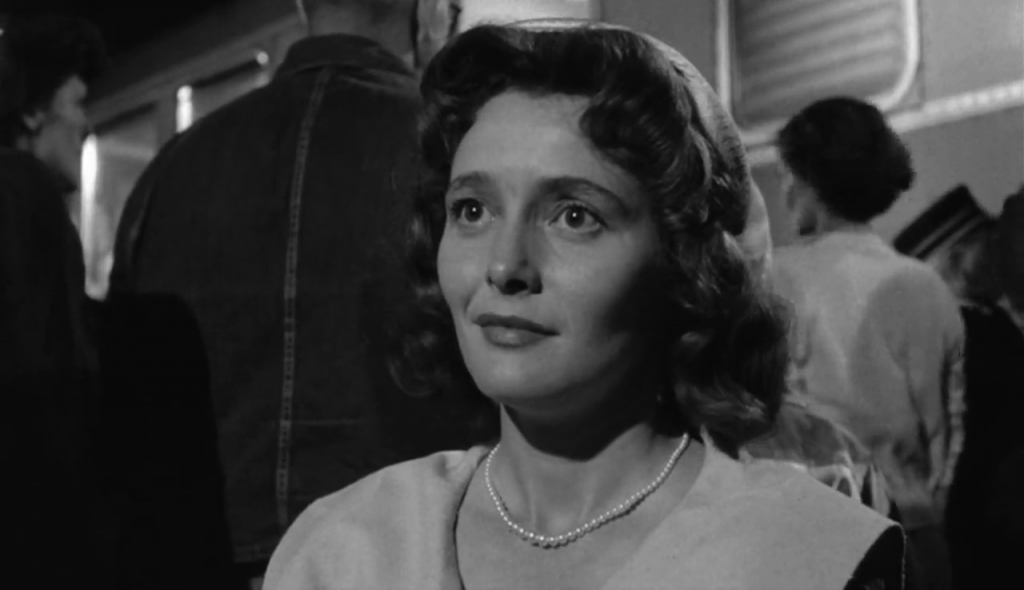
- Fine cinematography
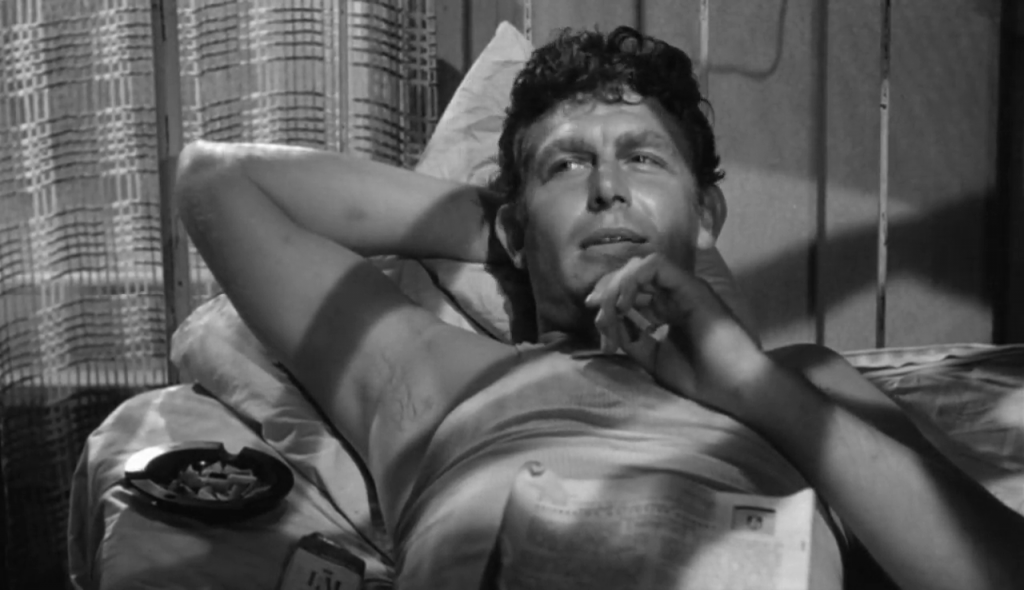
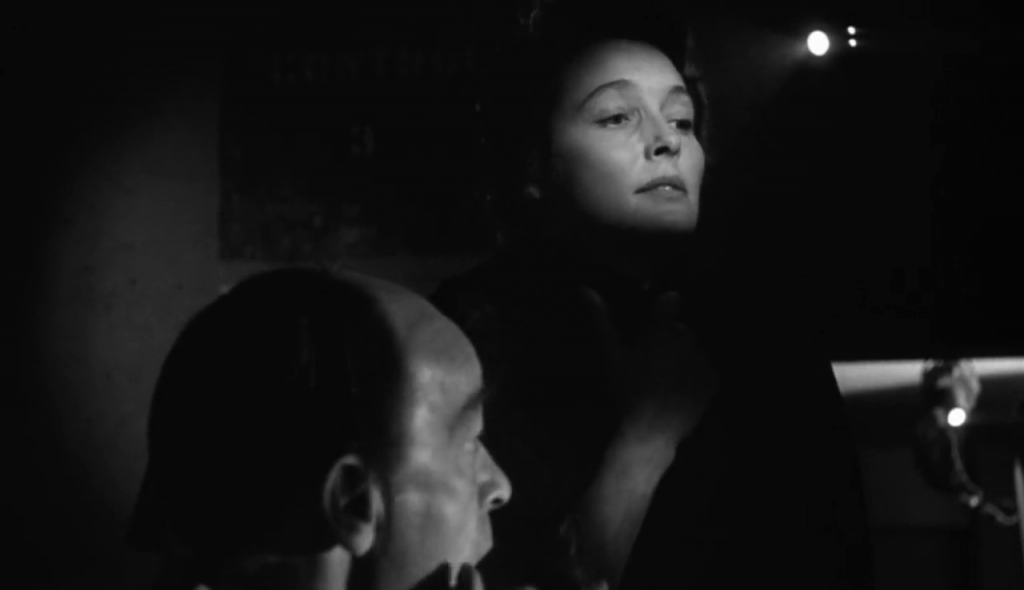
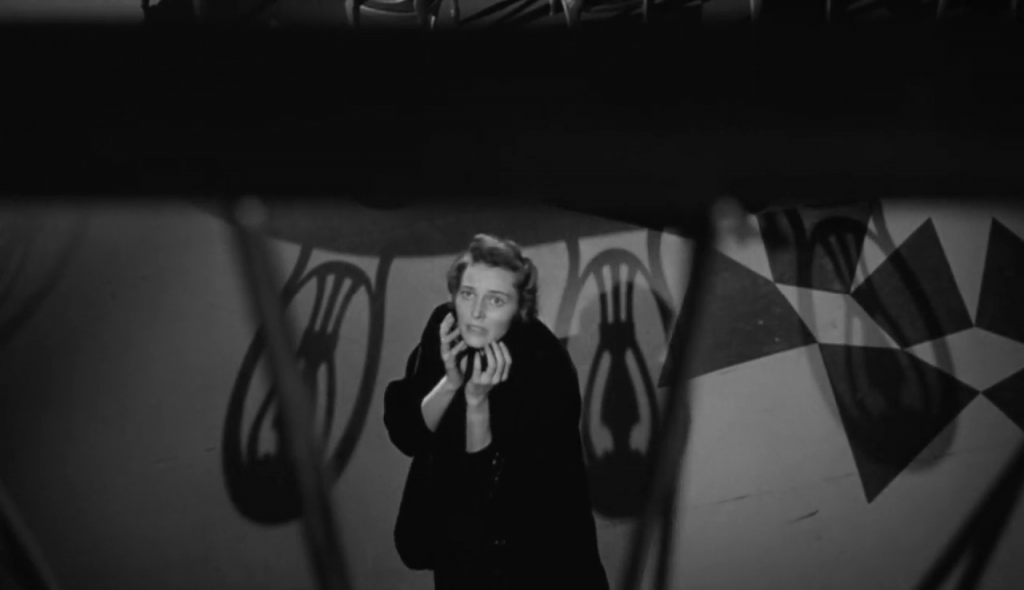
- Incisive direction by Kazan
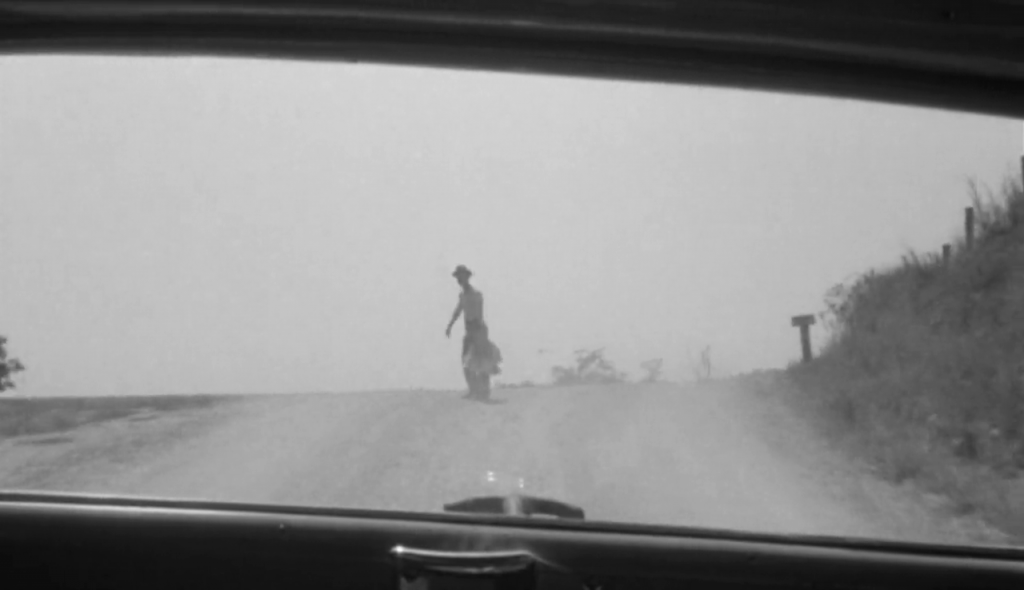
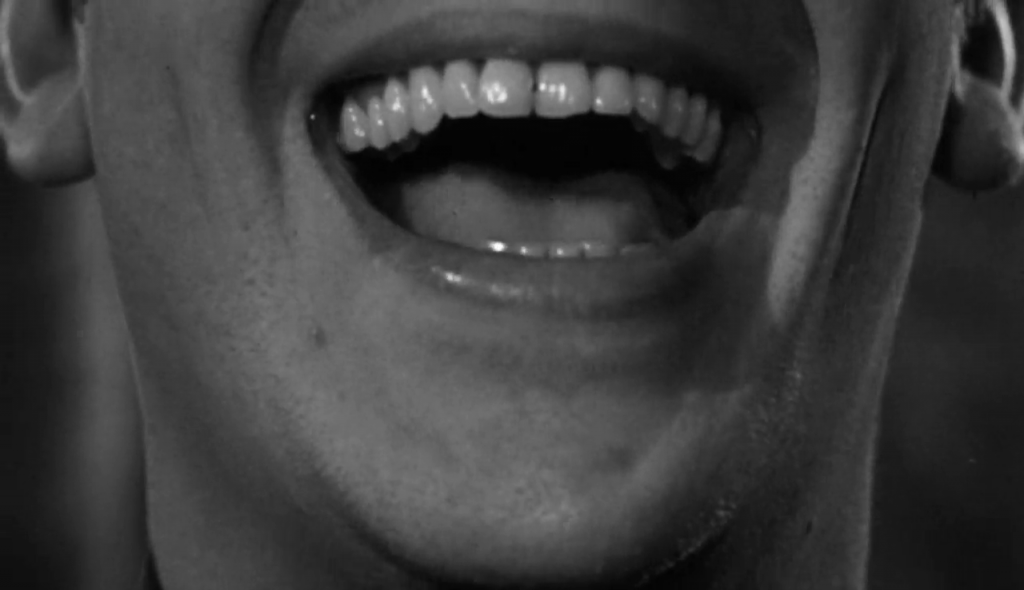
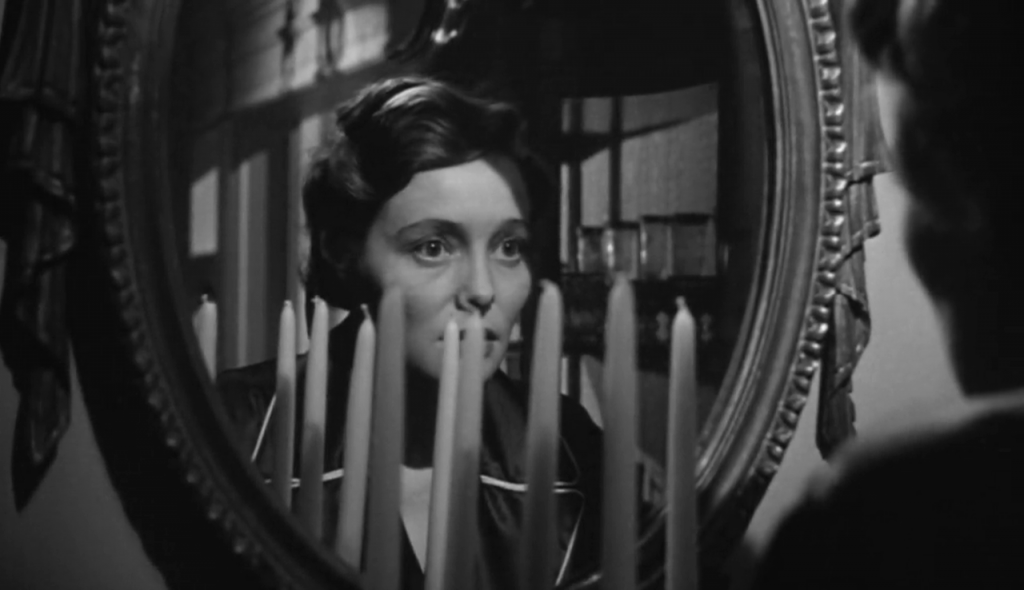
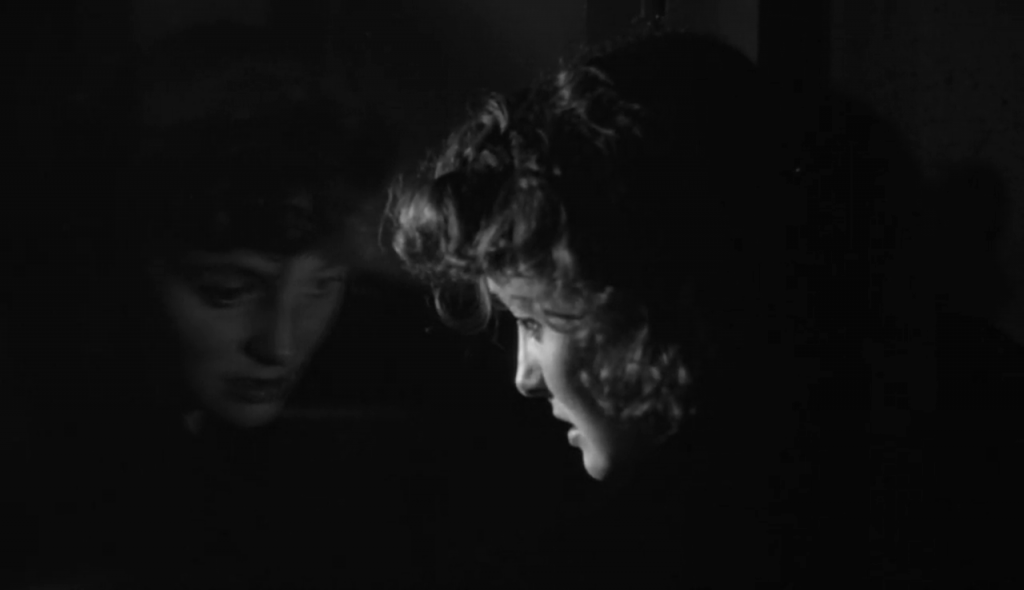
- Budd Schulberg’s searing screenplay
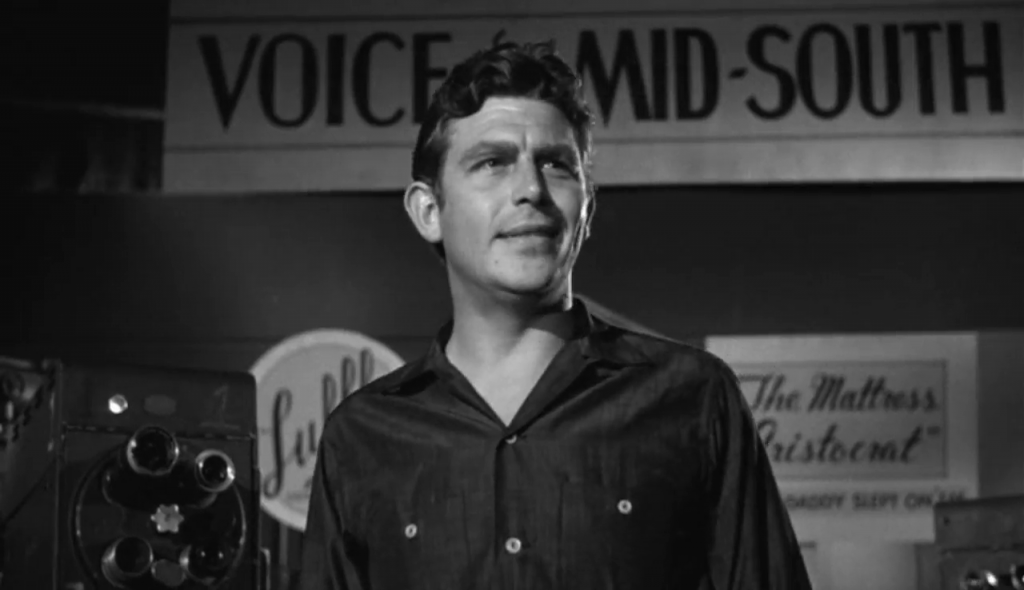
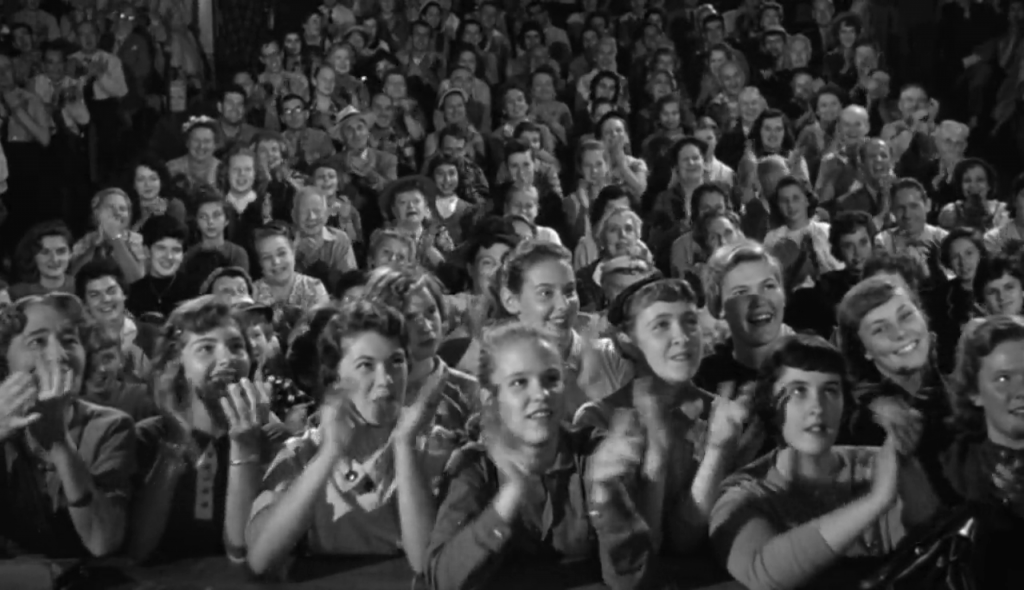
Must See?
Yes, as a heartbreakingly relevant classic. Nominated as one of the Best Pictures of the Year in Peary’s Alternate Oscars.
Categories
- Genuine Classic
- Noteworthy Performance(s)
Links:
|
One thought on “Face in the Crowd, A (1957)”
A definite once-must, for its place in cinema history, its theme, Kazan’s direction, Schulberg’s script, and the performances.
As posted in FB’s ’40-’50s in Film:
“You ought to know me better than to believe everything I say.”
‘A Face in the Crowd’ (1957): This is a movie as brilliant as it is depressing and disgusting. Because the quote above comes back like a loud echo at the end of the film, when Walter Matthau (apparently standing in for “zero tolerance for bullshit” screenwriter Budd Schulberg) lets Patricia Neal know, in no uncertain terms, that even though she didn’t exactly dodge all of the bullets..she got out before one of them actually did her in. It’s rather amazing how painfully well this film holds up today – in what it says about America and how much of the country (and big business) operates. Even if, on some level, some of what plays out feels slightly exaggerated for effect, its main point resonates with black truth: sell the calculation big – even if…especially if…you don’t mean it – and the sheep will follow. Much as I admire the bravery of all of the performances (under Kazan’s completely unsentimental direction), my favorite is turned in, smack on-target, by Kay Medford as Andy (Lonesome Rhodes) Griffith’s estranged first wife – who suddenly crawls out from the woodwork to get a bit of her own back. She is darkly hilarious.
And, as I added there later:
One thing I thought about today is how Kazan directed the shifting tones within most of the main characters. Matthau, for example, is seen as his jocular and more natural self when he’s in his more comfortable newsroom setting. But that mood leaves when, for example, he runs into Neal getting drunk in a bar. Neal’s character – which goes through a number of shifts as she progresses in her relationship with Griffith – is, of course, seen in the bar as getting drunk…but less so on alcohol than on her slavish, unchecked devotion to a man who is ruining her (which seems to have no effect on her passion for him).